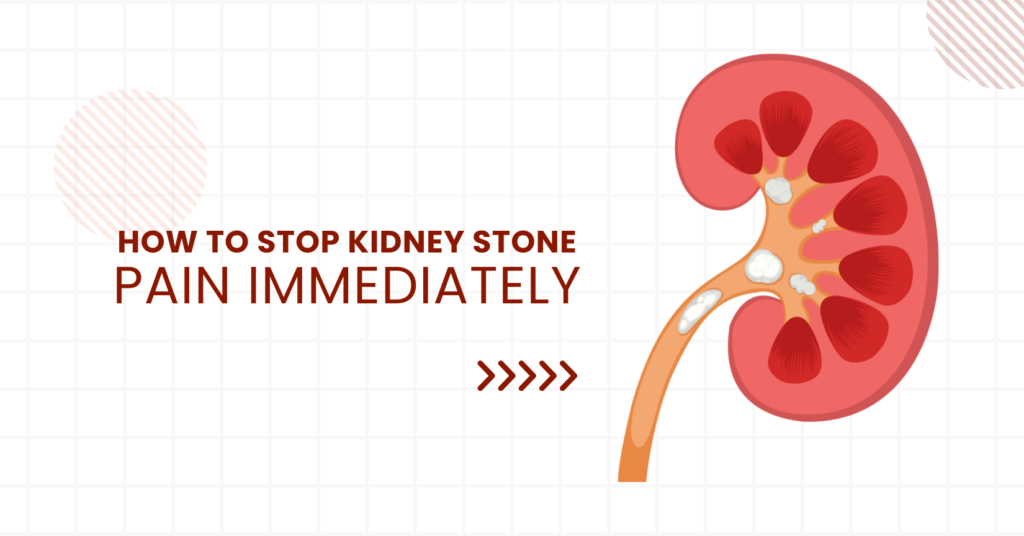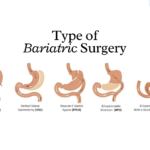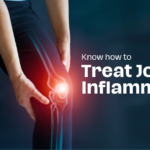
Immediate Relief from Kidney Stone Pain:
Kidney stones are small, hard mineral deposits that form in the kidneys and can cause intense pain as they travel through the urinary tract. If you’ve ever experienced kidney stone pain, you know just how excruciating it can be. In this comprehensive guide, we’ll delve into various methods to alleviate kidney stone pain immediately, providing you with practical strategies to find relief and ease your discomfort.
Understanding Kidney Stones:
Before we explore ways to alleviate kidney stone pain, let’s take a moment to understand what they are and how they form. Kidney stones are solid masses made up of minerals and salts that crystallize in the kidneys. They can range in size from tiny grains to larger stones that resemble pebbles. The most common types of kidney stones include calcium stones, uric acid stones, struvite stones, and cystine stones.
Kidney stones form when certain substances in the urine, such as calcium, oxalate, and uric acid, become highly concentrated and crystallize. These crystals can then stick together and form larger stones over time. Factors that increase the risk of developing kidney stones include dehydration, a diet high in sodium and protein, obesity, certain medical conditions, and a family history of kidney stones.
Symptoms of Kidney Stones:
The symptoms of kidney stones can vary depending on the size and location of the stone, but common signs and symptoms include:
1. Severe pain in the side and back, below the ribs
2. Pain that radiates to the lower abdomen and groin
3. Painful urination
4. Blood in the urine
5. Nausea and vomiting
6. Frequent urge to urinate
7. Fever and chills (if there is an infection)
Now that we understand the symptoms, let’s explore various methods to alleviate kidney stone pain immediately.
1. Stay Hydrated:
One of the most crucial steps in managing kidney stone pain is to stay well-hydrated. Drinking plenty of water helps to flush out the urinary system and can prevent the formation of kidney stones. If you’re experiencing kidney stone pain, increasing your fluid intake can help facilitate the passage of the stone and alleviate discomfort. Aim to drink at least 8-10 glasses of water per day, and consider adding lemon juice to your water, as the citric acid may help dissolve kidney stones.
2. Pain Medication:
Over-the-counter pain medications can provide quick relief from kidney stone pain. Non-steroidal anti-inflammatory drugs (NSAIDs) such as ibuprofen or naproxen can help reduce inflammation and alleviate discomfort. These medications can also help to relax the muscles in the urinary tract, making it easier for the stone to pass. Always follow the recommended dosage instructions and consult with your doctor if you have any underlying health conditions or are taking other medications.
3. Apply Heat:
Applying heat to the affected area can help relax the muscles and alleviate kidney stone pain. You can use a heating pad or a hot water bottle and apply it to the area where you’re experiencing pain. Make sure to wrap the heat source in a towel to avoid burns, and limit the application of heat to 20 minutes at a time. Heat therapy can help to increase blood flow to the area and may provide temporary relief from discomfort.
4. Take a Warm Bath:
Taking a warm bath can also be an effective way to relieve kidney stone pain. The warm water helps to relax the muscles and can provide soothing relief. You can add Epsom salts to your bathwater for added relaxation and pain relief. Simply soak in the warm bath for 20-30 minutes, allowing the water to ease your discomfort and promote relaxation.
5. Try Herbal Remedies:
Several herbal remedies may help alleviate kidney stone pain and promote the passage of the stone. Ginger, for example, has anti-inflammatory properties that may help reduce pain and nausea associated with kidney stones. You can brew ginger tea by steeping fresh ginger root in hot water for 5-10 minutes and then straining out the ginger. Drinking ginger tea regularly may help to ease kidney stone pain and discomfort.
Another herbal remedy to consider is nettle leaf tea, which is believed to have diuretic properties that can help increase urine flow and promote the elimination of kidney stones. You can brew nettle leaf tea by steeping dried nettle leaves in hot water for 5-10 minutes and then straining out the leaves. Drinking nettle leaf tea several times a day may help to alleviate kidney stone pain and facilitate the passage of the stone.
6. Change Your Position:
Sometimes, simply changing your position can help alleviate kidney stone pain. Lying down on your side with your knees drawn up towards your chest can help to relieve pressure on the urinary tract and may make it easier for the stone to pass. You can also try sitting in a reclined position or propping yourself up with pillows to find a comfortable position that reduces your pain.
7. Gentle Exercise:
While intense physical activity may exacerbate kidney stone pain, engaging in gentle exercise such as walking or stretching can help alleviate discomfort. Movement stimulates blood flow and can promote the passage of the stone through the urinary tract. Take short walks around your home or perform gentle stretching exercises to help relieve tension and discomfort.
8. Medical Intervention:
If the pain persists or becomes unbearable, it’s important to seek medical attention. Your doctor may prescribe stronger pain medications or recommend procedures to help break up or remove the kidney stone. One common procedure used to treat kidney stones is extracorporeal shock wave lithotripsy (ESWL), which uses shock waves to break up the stone into smaller pieces that can be passed more easily. In some cases, surgical intervention may be necessary to remove large or stubborn stones.
Prevention Strategies:
Once you’ve found relief from kidney stone pain, it’s essential to take steps to prevent future stones from forming. Here are some strategies to help prevent kidney stones:
1. Stay hydrated: Drink plenty of water throughout the day to keep your urine diluted and prevent the formation of kidney stones.
2. Eat a balanced diet: Maintain a healthy diet that’s low in sodium and oxalate-rich foods, such as spinach, rhubarb, and nuts, which can contribute to the formation of kidney stones.
3. Limit animal protein: Reduce your intake of animal proteins, such as meat and dairy products, as they can increase the risk of kidney stone formation.
4. Monitor your calcium intake: While calcium is essential for bone health, consuming too much calcium through supplements can increase the risk of kidney stones. Talk to your doctor about the appropriate amount of calcium for your needs.
5. Manage underlying health conditions: If you have underlying health conditions such as high blood pressure or diabetes, work with your healthcare provider to manage these conditions effectively, as they can increase the risk of kidney stone formation.
6. Consider medication: In some cases, your doctor may prescribe medication to help prevent the formation of kidney stones, especially if you have a history of recurrent stones or underlying medical conditions that increase your risk.
Kidney stone pain can be incredibly intense and debilitating, but there are steps you can take to find relief immediately. By staying hydrated, taking pain medication, applying heat, trying herbal remedies, and seeking medical intervention if necessary, you can alleviate discomfort and promote the passage of kidney stones. Remember to consult with your doctor before trying any new treatments, especially if you have underlying health conditions. With the right approach, you can ease kidney stone pain and take proactive steps to prevent future stones from forming.
In conclusion, while kidney stone pain can be a harrowing experience, you’re not powerless against it. This guide has equipped you with various methods for immediate relief, empowering you to manage the discomfort until it passes. Remember, prioritizing these strategies can significantly improve your comfort:
- Hydration is Key: Flush your system by drinking plenty of fluids, especially water with lemon juice.
- Pain Management: Over-the-counter pain relievers like ibuprofen can offer temporary relief.
- Heat Therapy: Apply a heating pad or hot water bottle to your lower back or abdomen for muscle relaxation.
- Warm Baths: Soak in a warm bath, potentially with Epsom salts, to ease tension and discomfort.
- Explore Herbal Remedies: Ginger and nettle leaf tea may provide pain relief and promote stone passage.
- Find Comfort in Movement: Gentle walking or stretching can aid in stone passage.
- Seek Medical Attention: If the pain is unbearable or persists, consult a doctor for stronger pain medication or stone removal procedures.
Preventing Future Kidney Stones
Having tackled the immediate discomfort, let’s focus on preventing future occurrences. Here are some essential preventive measures:
- Prioritize Hydration: Make water your go-to beverage, aiming for at least 8-10 glasses daily.
- Embrace a Balanced Diet: Limit sodium and oxalate-rich foods like spinach and nuts. Reduce animal protein intake and consult your doctor about calcium intake.
- Manage Underlying Conditions: Effectively manage pre-existing health issues like high blood pressure or diabetes, which can contribute to stone formation.
- Preventive Medication: In some cases, your doctor might prescribe medication to prevent stones, especially if you have a history of them.
Remember, you’re not alone in this journey. Aapka Care, a leading medical facility in Mumbai, offers exceptional kidney transplant services. Their team of specialists is dedicated to providing comprehensive care for patients with kidney problems, including those considering transplants.
By implementing these steps and seeking professional guidance when needed, you can significantly reduce your risk of future kidney stones and live a healthier life. Remember, knowledge is power, and with the right approach, you can take control of your kidney health.



